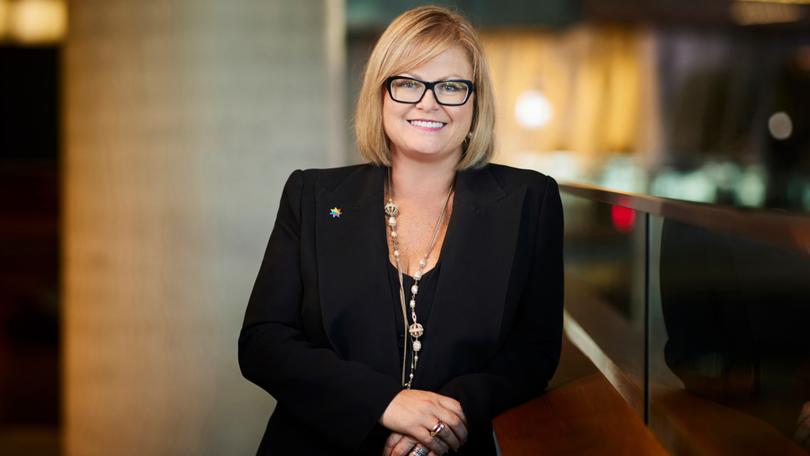New NAB business bank boss Rachel Slade says there’s reason for optimism despite the tough economy
Businesses are confident the tight economic conditions will be temporary and are holding firm to expectations of an improvement in consumer sentiment in the next year or so, a senior NAB executive says.

Businesses are confident the tight economic conditions will be temporary and are holding firm to expectations of an improvement in consumer sentiment in the next year or so, a senior executive at National Australia Bank says.
Rachel Slade, the institution’s newly-appointed business banking chief, also said labour shortages remain a handbrake on business growth despite a loosening labour market.
“The optimism right across the country is still really positive,” she said, pointing to WA as a particular economic stronghold.
Sign up to The Nightly's newsletters.
Get the first look at the digital newspaper, curated daily stories and breaking headlines delivered to your inbox.
By continuing you agree to our Terms and Privacy Policy.“We’ve got great businesses that know how to pivot and know how to evolve as the world changes, as the climate changes, as customer demand changes.”
Ms Slade took charge of NAB’s business bank — the most crucial for the nation’s second-largest lender as it holds the mantle as the largest business bank — after her predecessor, Andrew Irvine, was appointed chief executive earlier this year, replacing Ross McEwan. A former head of retail banking, Ms Slade had been considered a contender for the CEO position.
Ms Slade said there were differences between the two divisions: personal customers have had to develop “a budgeting muscle” to respond to cost-of-living pressures, and business customers are “a bit more nimble”, exemplified by a constant entrepreneurial spirit.
Business banking among the majors remains highly competitive, with the Commonwealth Bank making no bones about its goals to grow its business banking footprint.
CBA is the largest personal bank in the country but NAB still leads on business lending overall.
“It’s super competitive but that’s fun, right,” Ms Slade told The Nightly in a recent interview. “Competition drives energy and innovation.
“It’s pretty exciting to step into a business (bank) that’s the biggest in the country, best banking job in the country, but then the challenge is how do you maintain that?”
Ms Slade is pinning much of the expectation for NAB holding and growing its lead to the strength of its banking relationship with customers.
Big banks have copped political wrath recently amid regional branch closures and a Senate inquiry suggesting their big four have abrogated responsibilities to regional communities. Some business owners say they’ve found life difficult without a physical banking presence in town.
Ms Slade said business customers understood the principles behind branch closures. Some of NAB’s recently closed regional branches were dealing with just 12 customers per day, but the bank had chosen instead to invest $200 million nationally in its branch network to create regional hubs in larger population centres.
“I think we can do a better job of promoting the services that are available through Bank at (Australia) Post because they’re everywhere, including lots of places that banks have never had branches,” she said.
“The facts are that we’re reshaping where we show up, based on where customers are showing up.”
Ms Slade, who travelled to regional Queensland and NSW before a 10-day stint in WA, reported a strong appetite — and trepidation — from businesses to adopt artificial intelligence, including in agriculture where some farming customers are eyeing productivity boosts.
There had also been a jump in demand for green equipment, up 80 per cent nationally in the past six months and a whopping 305 per cent in WA, 82 per cent in NSW and 78 per cent in Tasmania.
“There are incentives for that but businesses are interested in it as well,” Ms Slade said. “And in most cases, it’s good for the planet, good for the business — so that’s been an interesting shift and I think that’ll continue.”
